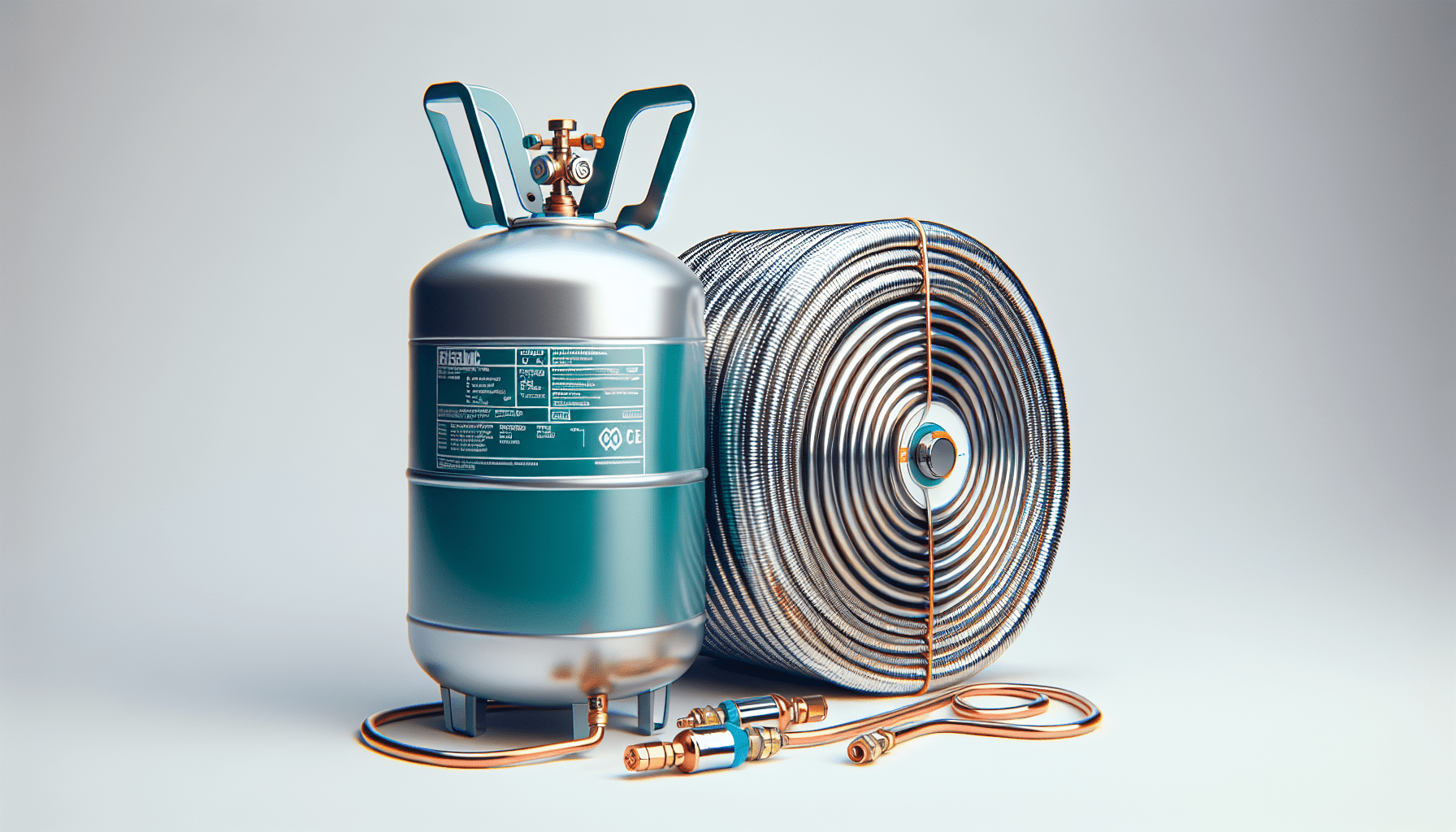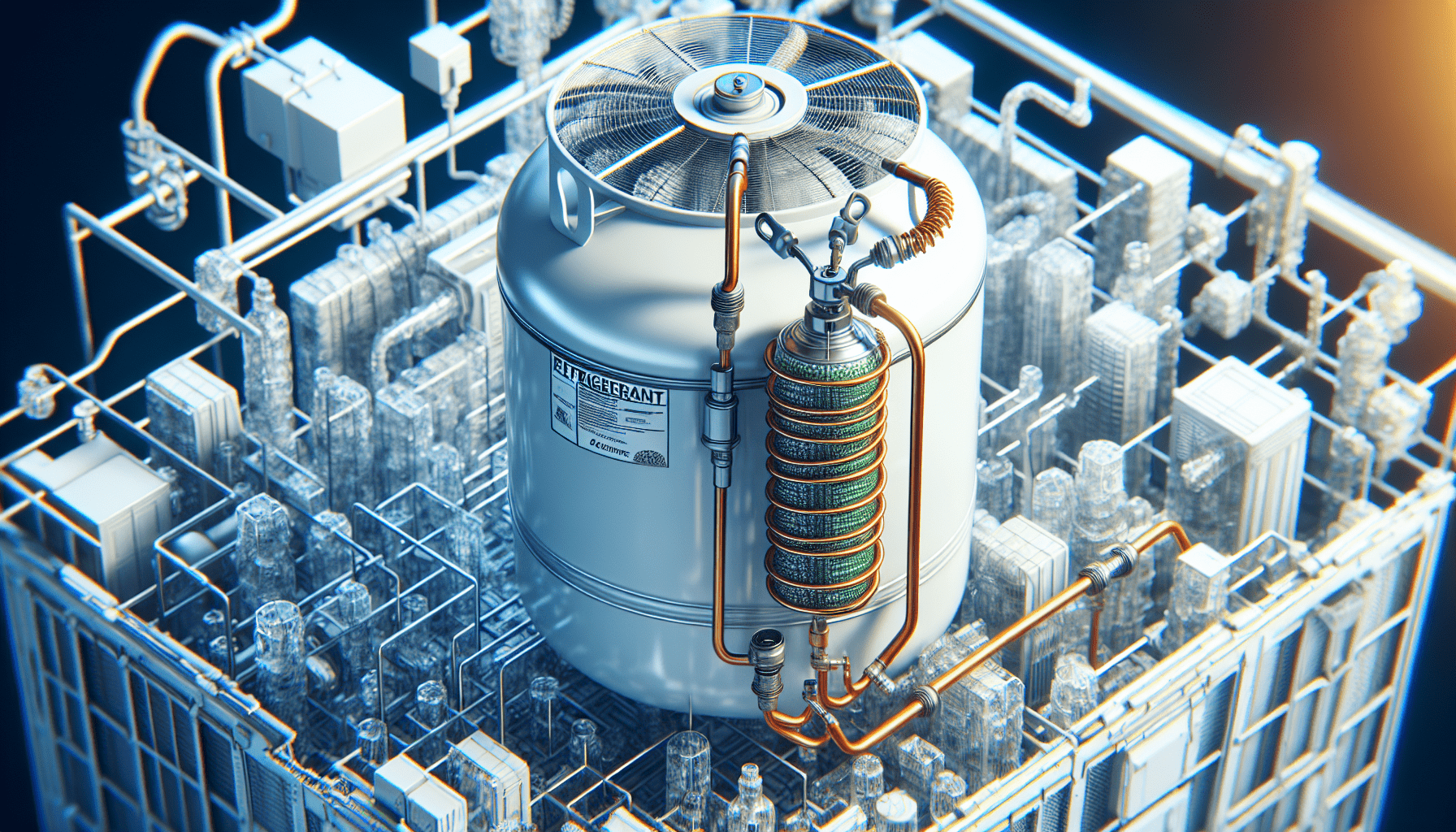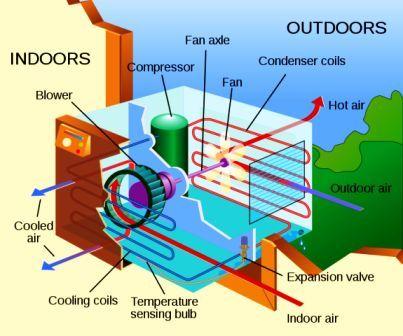Welcome to your guide on understanding the important role of refrigerant in your air conditioning system. Refrigerant is a crucial component that helps to cool the air in your home or office. It absorbs heat from the indoor air and releases it outside, allowing for a comfortable environment inside. By learning more about how refrigerant works and why it is essential for your air conditioning system to function properly, you can ensure that your system operates efficiently and effectively. Let’s dive into the basics of refrigerant and how it plays a vital role in keeping you cool during those hot summer days. Have you ever wondered how your air conditioning system works to keep your home cool and comfortable during the hot summer months? You may have heard the term “refrigerant” thrown around, but do you really understand its role in the process? Let’s dive into the fascinating world of refrigerant and how it plays a crucial role in keeping your air conditioning system running smoothly.

What is Refrigerant?
So, what exactly is refrigerant? Refrigerant is a chemical compound that is used in air conditioning systems and refrigerators to remove heat from a designated area. It works by absorbing heat from the air inside your home and releasing it outside. This process allows your air conditioning system to cool the air and maintain a comfortable temperature indoors.
How Does Refrigerant Work?
When your air conditioning system is turned on, the refrigerant circulates through a closed-loop system of coils. As the refrigerant moves through the evaporator coils, it absorbs heat from the indoor air, cooling it in the process. The now-cooled air is then circulated back into your home.
After absorbing the heat, the refrigerant is pumped to the condenser coils located outside of your home. Here, the refrigerant releases the heat it absorbed from the indoor air, cooling it down and turning it back into a liquid form. This cycle continues as long as your air conditioning system is running, keeping your home cool and comfortable.
Common Types of Refrigerants
There are several different types of refrigerants used in air conditioning systems, each with its own set of advantages and disadvantages. Here are some of the most common types of refrigerants used today:
| Type of Refrigerant | Description |
|---|---|
| R-22 (Freon) | A commonly used refrigerant in older air conditioning systems. However, it is being phased out due to its harmful effects on the ozone layer. |
| R-410A | A more environmentally-friendly alternative to R-22, R-410A is commonly used in modern air conditioning systems. It is more energy-efficient and has a lower impact on the environment. |
| R-134a | Typically used in automotive air conditioning systems, R-134a is a safer alternative to older refrigerants like R-12. |
Environmental Impact of Refrigerants
It’s important to consider the environmental impact of the refrigerant used in your air conditioning system. Older refrigerants like R-22 (Freon) have been found to deplete the ozone layer and contribute to global warming. That’s why newer, more environmentally-friendly refrigerants like R-410A are being adopted in modern air conditioning systems.
Energy Efficiency
In addition to considering the environmental impact, it’s also important to think about the energy efficiency of the refrigerant used in your air conditioning system. More energy-efficient refrigerants like R-410A can help reduce your energy consumption and save you money on your utility bills in the long run.
Signs of Refrigerant Leaks
One common issue that can arise with air conditioning systems is refrigerant leaks. If your system is low on refrigerant, it can lead to poor performance and inefficient cooling. Here are some signs that indicate you may have a refrigerant leak:
- Warm Air: If your air conditioning system is blowing warm air instead of cold air, it could be a sign of a refrigerant leak.
- Hissing or Bubbling Noises: A refrigerant leak may produce hissing or bubbling noises coming from your air conditioning system.
- Ice Buildup: If you notice ice buildup on the refrigerant lines or coils, it could be a sign of a refrigerant leak.
- Increased Energy Bills: A refrigerant leak can cause your system to work harder and consume more energy, leading to higher utility bills.
If you suspect that your air conditioning system has a refrigerant leak, it’s important to contact a professional HVAC technician to diagnose and repair the issue.
Recharging Refrigerant
If your air conditioning system is low on refrigerant due to a leak or natural loss over time, it may need to be recharged. Recharging refrigerant should only be done by a certified HVAC technician, as it requires specialized knowledge and equipment. Here’s what you can expect during the refrigerant recharge process:
- Diagnosis: The technician will first diagnose the source of the refrigerant leak and repair it before recharging the system.
- Refrigerant Recharge: The technician will add the correct amount of refrigerant to the system to restore proper functioning.
- System Testing: After recharging the refrigerant, the technician will test the system to ensure it is cooling properly and that there are no further leaks.
It’s important to note that simply adding more refrigerant without addressing the underlying issue will not solve the problem in the long term. Always consult a professional HVAC technician to properly diagnose and repair refrigerant leaks.

Proper Maintenance of Refrigerant
To ensure that your air conditioning system continues to run smoothly and efficiently, it’s important to maintain the refrigerant at the proper levels. Here are some tips for proper maintenance:
Regular Inspections
Schedule regular inspections of your air conditioning system by a professional HVAC technician. They will be able to check the refrigerant levels, inspect for leaks, and make any necessary repairs.
Air Filter Replacement
A clogged or dirty air filter can restrict airflow and cause your air conditioning system to work harder, which can lead to refrigerant issues. Make sure to replace your air filter regularly to maintain proper airflow.
Clean Coils
Dirt and debris can accumulate on the evaporator and condenser coils, reducing the efficiency of your air conditioning system. Regular cleaning of the coils can help maintain optimal performance.
Professional Maintenance
Consider signing up for a seasonal maintenance plan with a trusted HVAC company. They will perform regular check-ups on your system, including inspecting the refrigerant levels and making any necessary adjustments.
By following these maintenance tips, you can help prolong the life of your air conditioning system and ensure that it continues to operate effectively.
Understanding the role of refrigerant in your air conditioning system is essential to maintaining a comfortable indoor environment. By knowing how refrigerant works, the different types of refrigerants available, and signs of refrigerant leaks, you can better care for your system and ensure it operates efficiently. If you ever have any questions or concerns about your air conditioning system or refrigerant levels, don’t hesitate to reach out to a professional HVAC technician for assistance. Stay cool and comfortable all year round!




